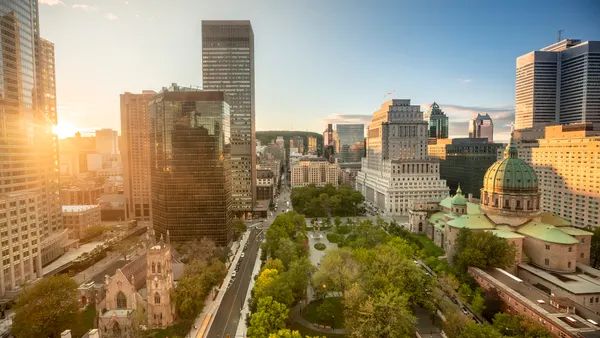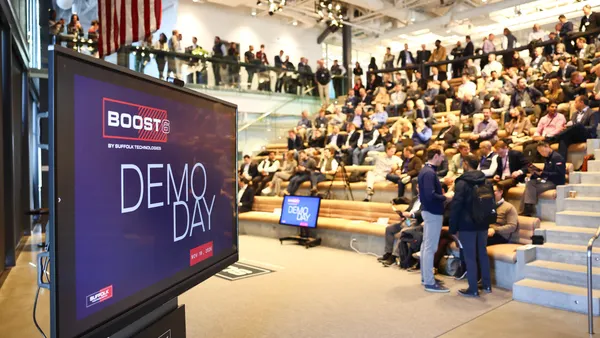Greenbuild came to an end last week, and Construction Dive was on-site to talk with green construction experts about the growing trend of sustainable building. Here are some of the most notable observations and insights from events and interviews during the show:
"Think of yourselves as change agents. Government leadership and regulation will always be late... Business needs to be encouraged to have a conscience and find solutions that are beneficial and profitable."
— James Cameron, director of "Titanic" and "Avatar," inventor, engineer, philanthropist, and deep-sea explorer, commending Greenbuild attendees for their work to help drive green building forward.
"When we make homes healthier and more efficient, we do right by the families who live there."
— Julian Castro, Secretary of U.S. Department of Housing and Urban Development, on the commitment of HUD and the Obama administration to improving the sustainability of homes and the lives of residents.
"The Republican candidates leading the polls are clinging to an oudated notion that (energy-efficient changes) hurt the economy. The truth is, there is a powerful, pro-conservative business case for green building. Sustainability is profitable, and profitability is sustainable."
— Rick Fedrizzi, founder and CEO of the U.S. Green Building Council, discussing what he considers the antequated narrative that green building can't be good for business.
"We have to find ways to quantify the benefits of diversity."
— Kira Gould, director of communications for William McDonough + Partners architecture firm and author of "Women in Green: Voices of Sustainable Design," addressing the trend of slow progress in diversity in the A/E/C industry. She noted that when green was more on the fringes of the industry, women had room to grab leadership roles. Now that the movement has moved more toward mainstream practice, men have started to take away that progress and are occupying more leadership rules, she said. To counteract this trend, Gould suggested finding a way to quantify the results of a project and then relate those metrics to the diversity of the team that designed the project.
"I am optimistic under the circumstances. The U.S. has got to get its mojo back. It's still struggling with confidence, and too much time is being spent on negativity."
— Alex Carrick, chief economist for CMD research group, on his perspective of the current state of the U.S. economy. He said he believes the current cycle will be different from past cycles, but that is expected to occur as society changes.
"I'm really excited. There are now built products that show it's attainable."
— Stacy Smedley, director of sustainability at Skanska USA Building, talking about net-zero buildings and the growing interest in the high standard. She said that in some markets, Skanska has tested out a program asking building owners and potential clients, "Why does your building matter?"













